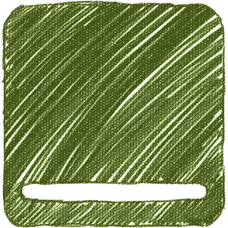Neighbourhood Development

MLS Contents
- Phases
- Sectors
- Organising
- Land and Planning
- Tenure
- Services and Facilities
- Access
- Neighbourhood Development
- Housing
- Financing
Contents |
Key document
See the section below on additional information.
Aided self growing
Once people are able to move onto their plot they should also start to create gardens for food and small animals (e.g. chickens). Households will know that they have tenure security so are likely to be more willing to start investing time and money in creating an effective food garden.
The use of grey water from the house and roof and storm water for gardening can be planned right from the start. Composting systems can also be put in place. Any house upgrading can then add to these systems.
Depending on how the plots have been laid out gardening can also occur at the block scale and neighbourhood scale. Block gardens could be like community gardens located separately from the house but with houses surrounding it providing visual and physical security. Neighbourhood plots would be community gardens and/or small scale agricultural plots.
Aided self work
Tenure security also provides households with the incentive to start using their plots for income generating activities, like opening a small shop, providing a hair salon service or sewing new clothes.
The aided element of self work includes skills training in business and technical skills, access to local micro business start-up and expansion loans, marketing advice and support, etc. These support services can be provided from a local multipurpose hall, or as part of a mobile service.
It is important for the incremental settlement zoning category to make it easy for households to get permission to undertake these types of activities, while at the same time protecting neighbours from noisy and polluting activities that some may want to undertake.
The way that infrastructure is sourced and implemented can also contribute to local work. The community works programme could work well in an incremental settlement process. A group of people decides what type of work will be undertaken in an area and people are paid a minimum wage for a day or two a week to undertake this work.
Aided health and safety
Safety includes local community policing forums and neighbourhood watch schemes.
The concept of defensible space can also be incorporated into the design of the neighbourhood, so for example houses can be located around child play areas or community gardens, with the main living area windows looking onto these spaces for visual protection. Fencing and changes in paving and signage can also be used to show where public (open to everyone), common (open to those within the group) and private (open to households) spaces end and start.
Health involves making sure that environmental health is promoted, with for example, proper drainage around communal taps, and good lighting around communal toilets.
The organisational capacity and sense of community that is created through an ongoing incremental settlement process can also be used to organise local care givers for the sick, young and aged.
Mental health is fostered though creating nice and safe environments thereby building a sense of belonging to place and community.
Continue with government maintenance and improvement
In the same way that households have to continually maintain and upgrade their homes and plots, so too does government need to maintain and upgrade the public spaces, roads, and community facilities and services that it has been involved in developing.
From a government perspective the incremental process can be seen as one where; • during the bulk preparation phase, government helps in identifying appropriate land and getting the necessary approval to buy and develop this land for incremental settlement; • during the basic product stage government provides what limited resources it can afford to use to do some basic planning and demarcation of plots, put in basic services, provide a basic form of tenure, provide community facilities, and ensure that the public transport system services the area. • during the aided self development phase government support may be limited, leaving the development up to the households themselves; unless government takes it upon itself to provide various forms of aided support, like through housing support centres, agricultural expansion services and/ or small business advice offices. • during the upgrade phase government returns to the area and provides additional funding that can be added to what communities and households have started to do themselves, to convert to ‘upgraded’ forms of tenure, upgrade the level of services, upgrade the home, and upgrade other community facilities and services.
The municipalities and governments role does not end here. Refuse has to be removed, streets have to be cleaned, schools have to be painted, equipment in clinics has to be upgraded, etc.
Additional information
You can find links to additional information related to this topic by following the following links:
- Thought Piece: Gender and Managed Land Settlement
More still to come.
Comments
If you have any comments, questions, thoughts or suggestions for additional information please share them with us by using the comments page.
